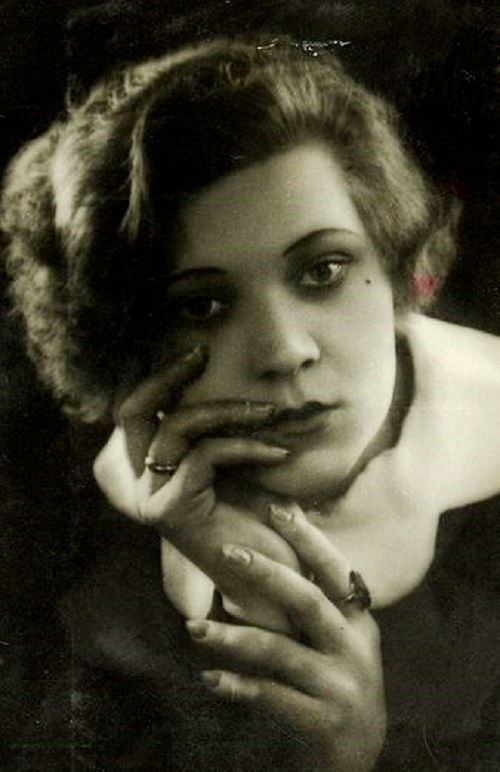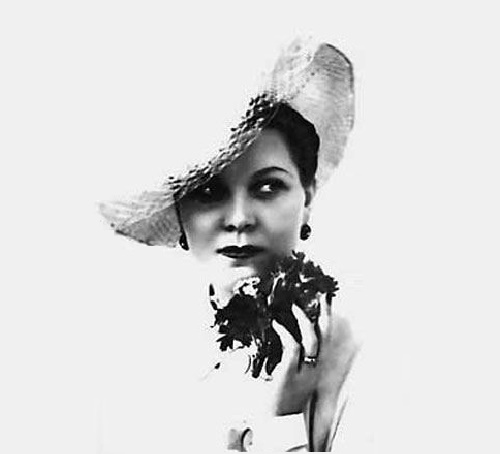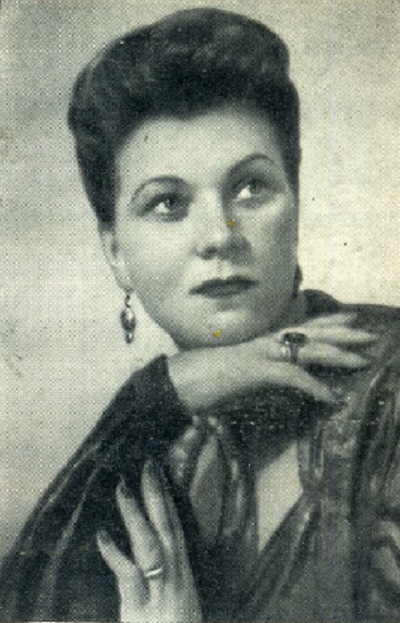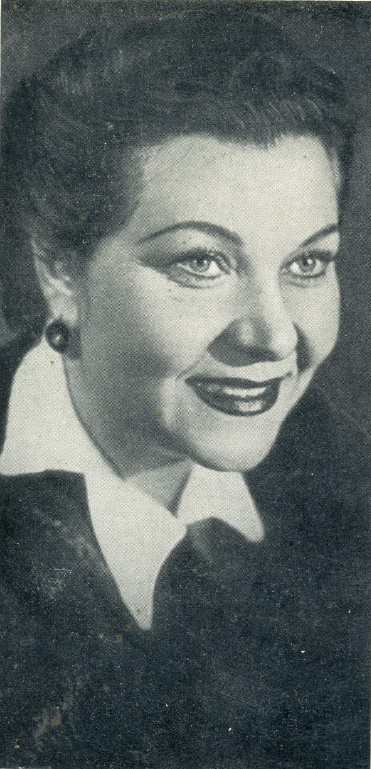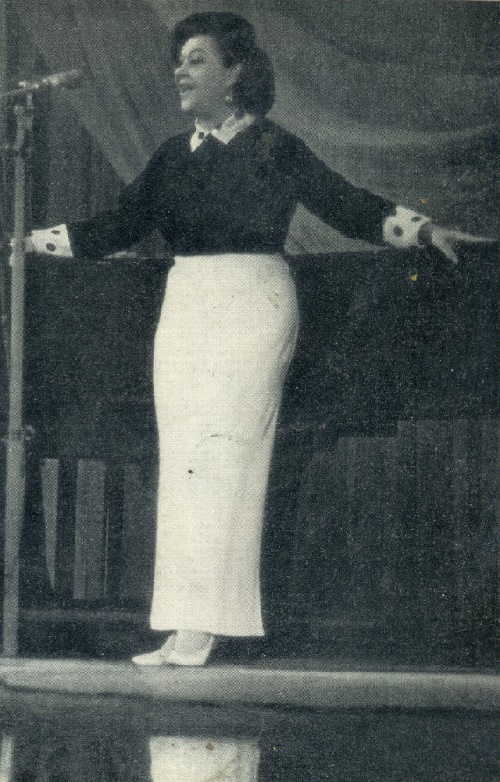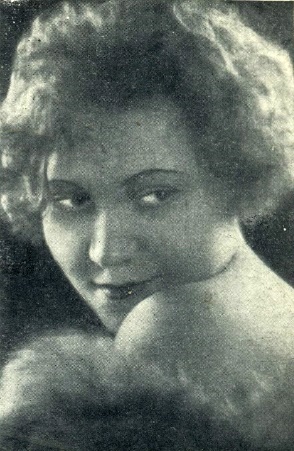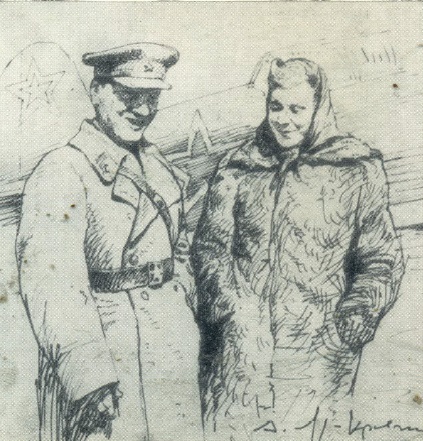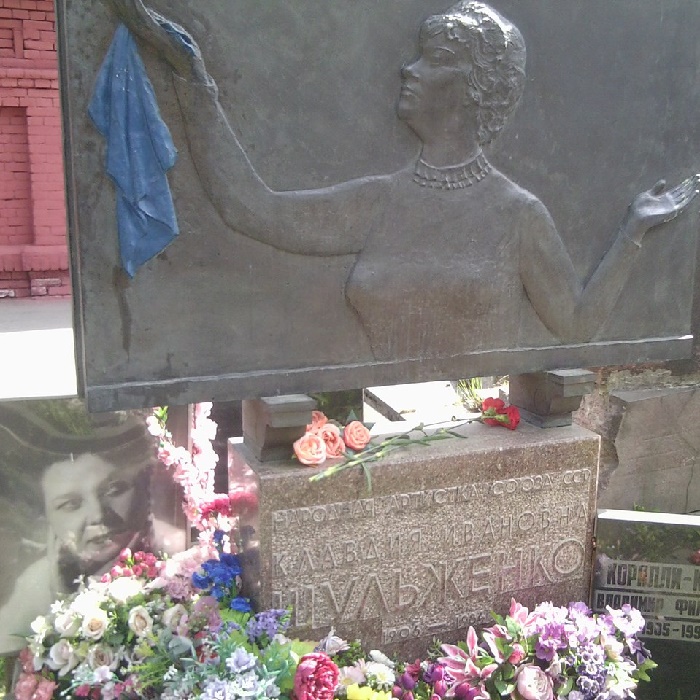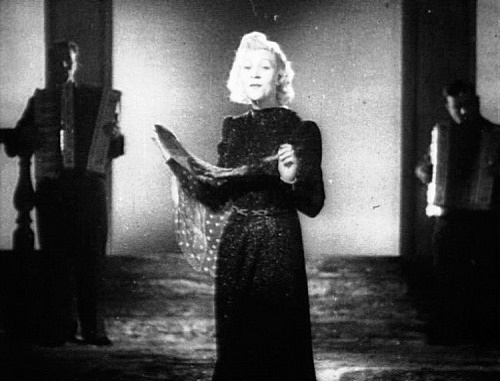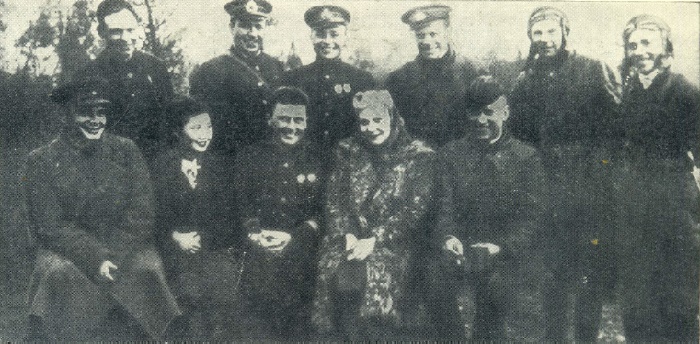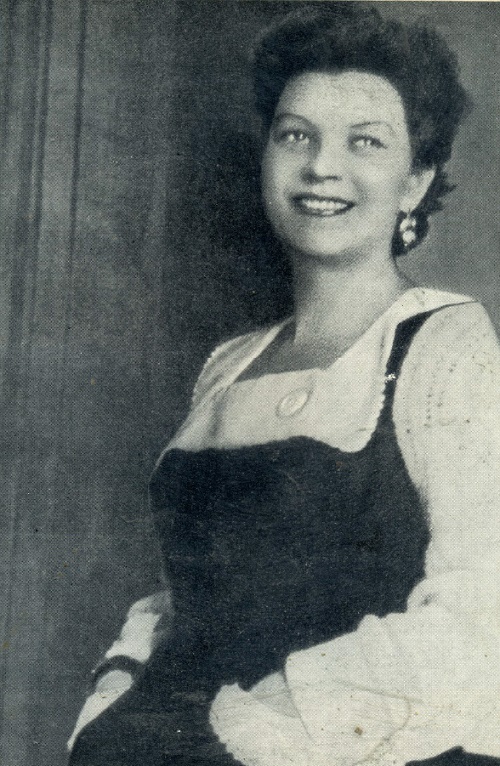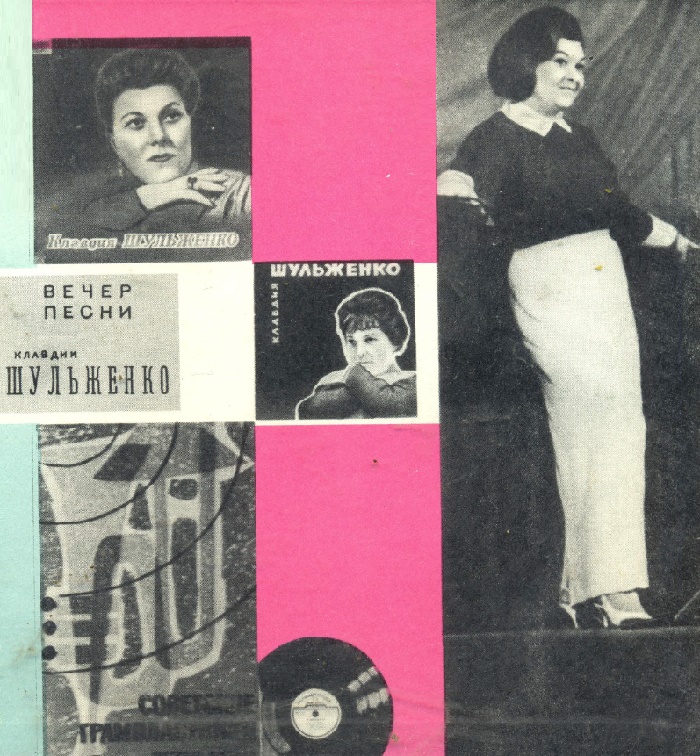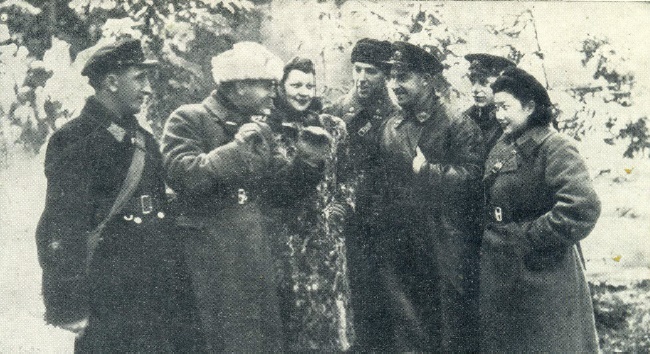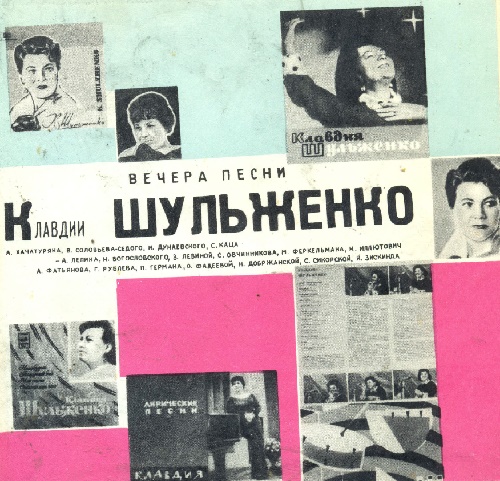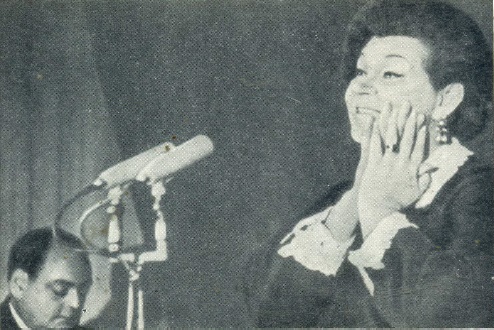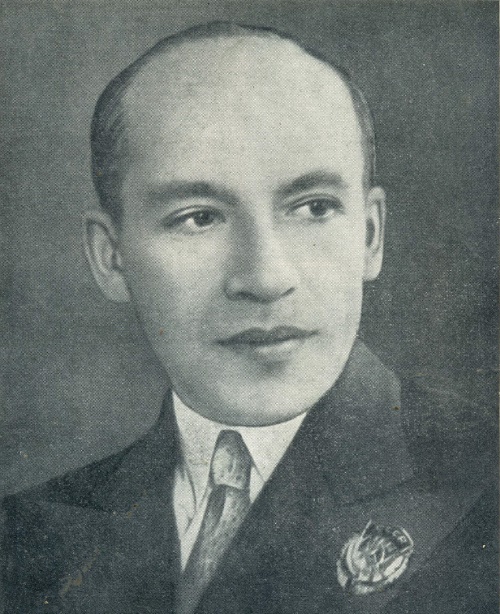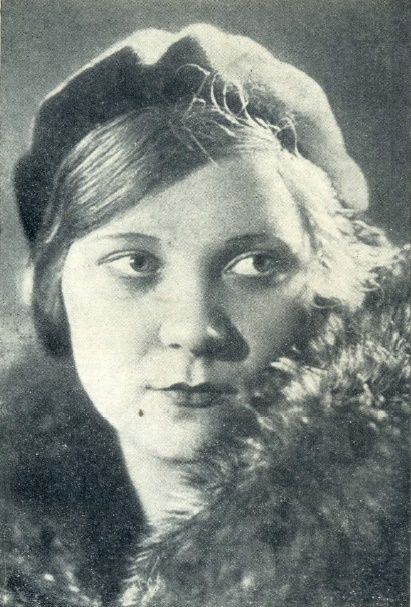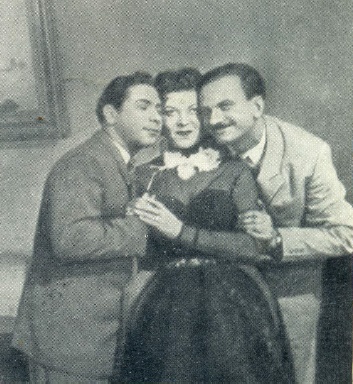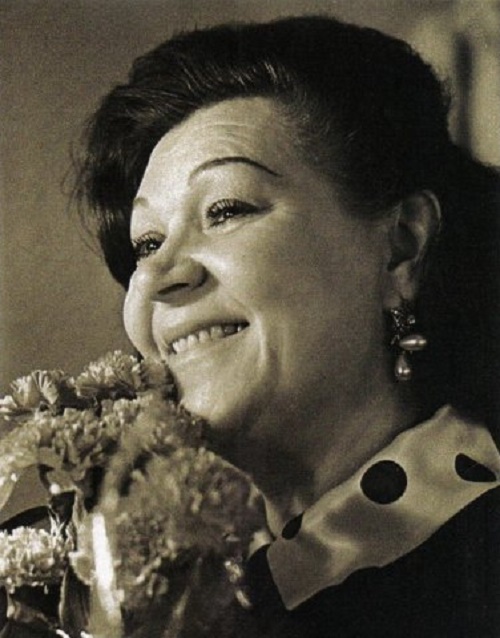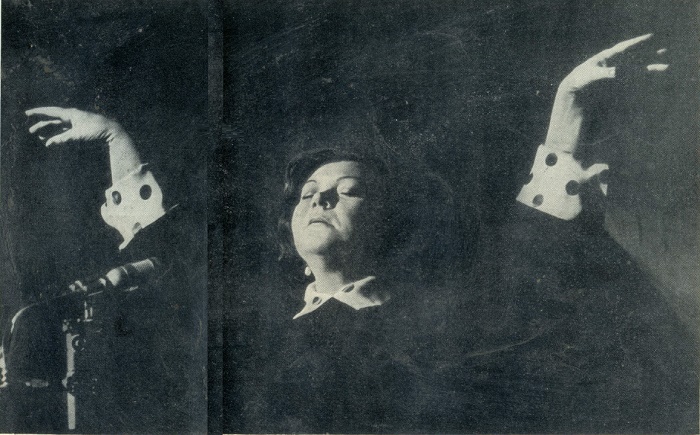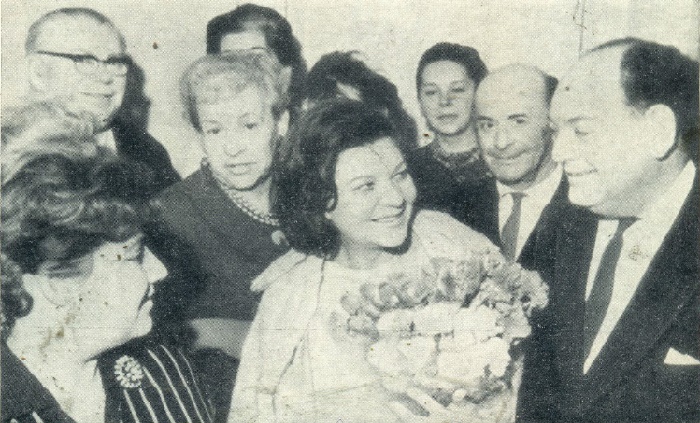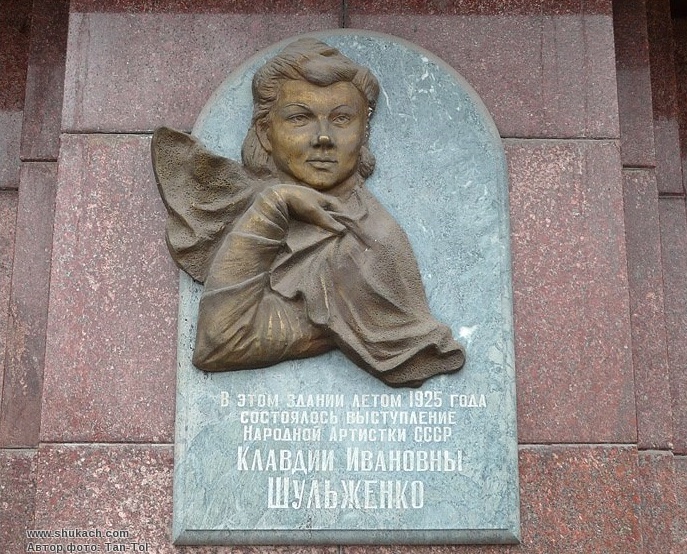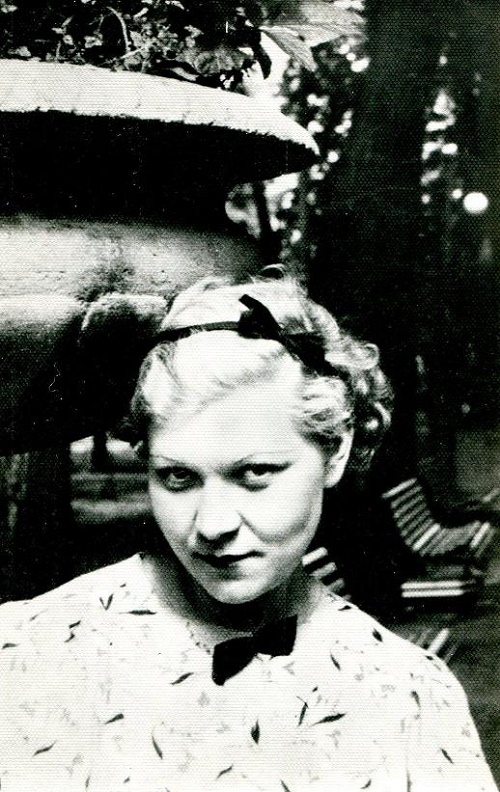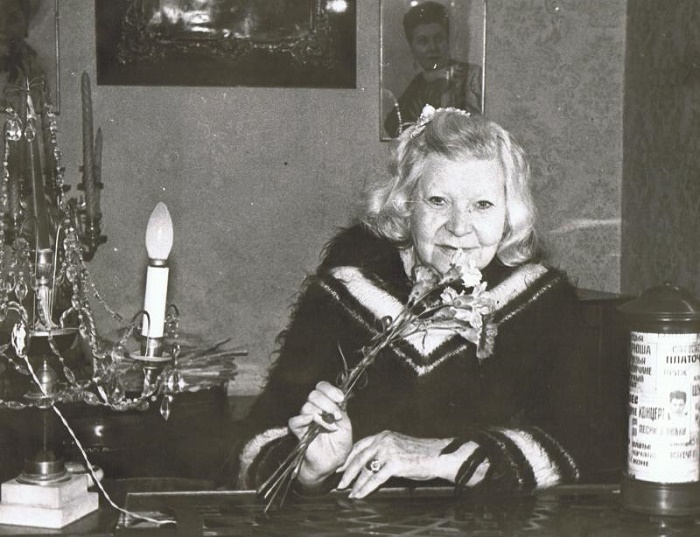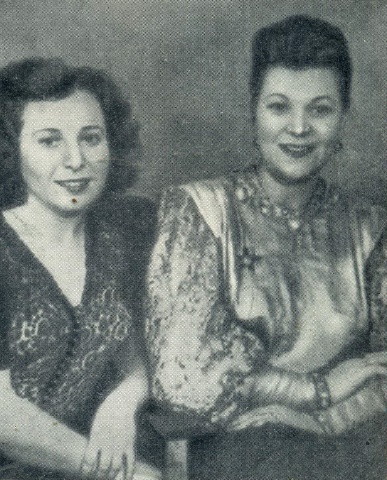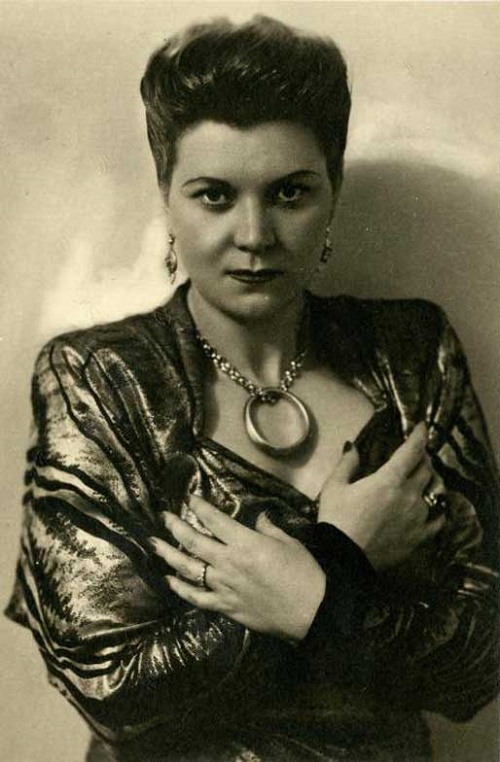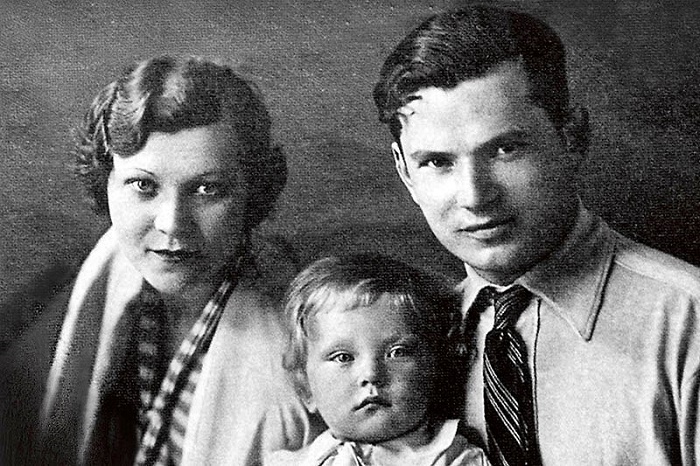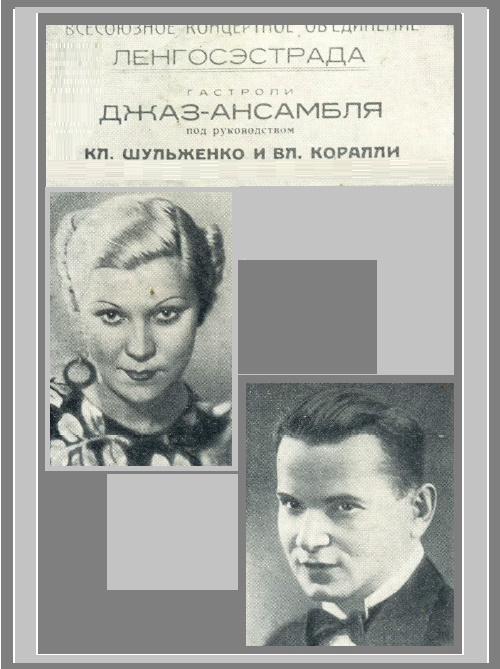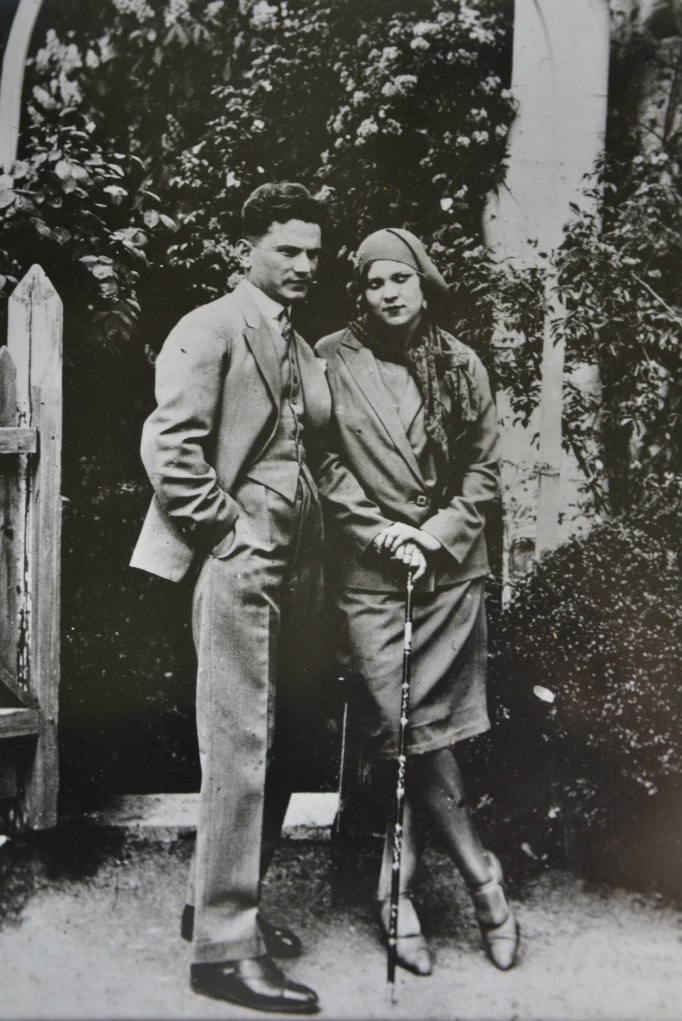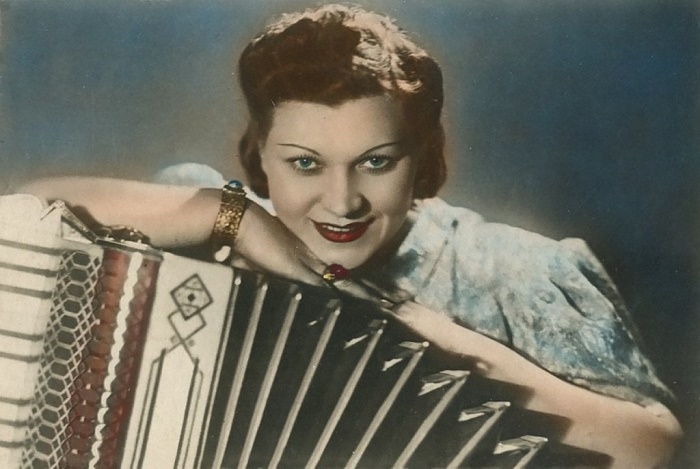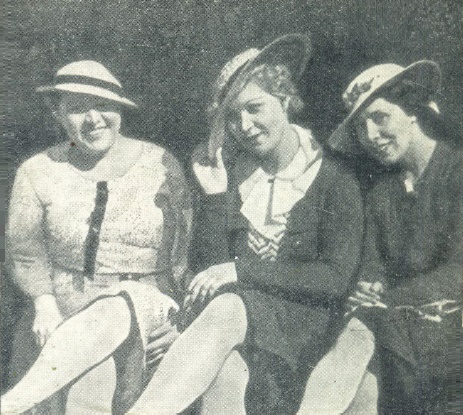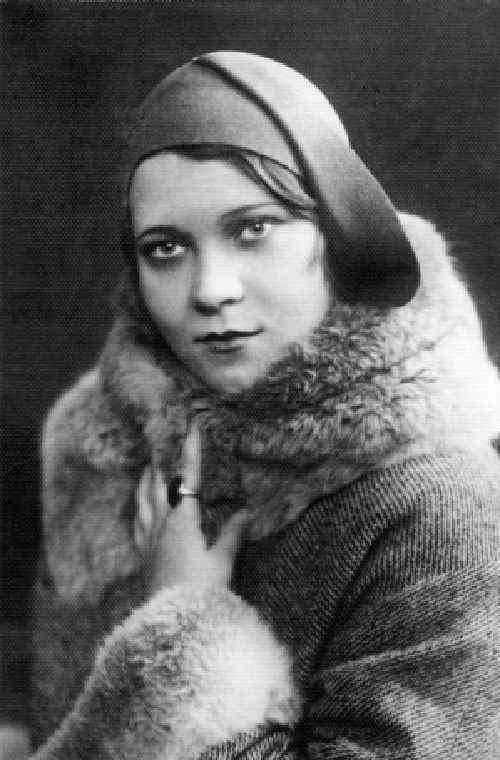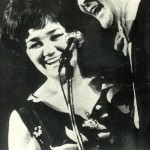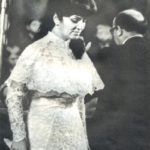Soviet female singer Klavdiya Shulzhenko 1906-1984
Soviet female singer Klavdiya Shulzhenko (March 24, 1906 – June 17, 1984) – People’s Artist of the USSR (1971), laureate of the Order of Lenin (1976), Chevalier of the Order of the Red Star (1945), Awarded with the Medal “For the Defense of Leningrad”.
Born on March 24, 1906 in Kharkov, Shulzhenko dreamed of becoming an actress in a drama theater since childhood. This dream originated from her father, from whom she first heard Ukrainian folk songs. He was seriously interested in music: playing a wind instrument, and sometimes singing solos in concerts. His speeches, his beautiful chest baritone, led the daughter into indescribable delight …
In her youth, Klavdiya took part in amateur art activities. These performances went on the stage, made in the middle of the yard, and aroused great interest among the residents of the neighboring houses. They came to the show with their chairs, stools and benches. In each performance there were songs and dances, and Klavdiya always sang either during the play or in the concert. At that time, Shulzhenko planned to become a dramatic actress, and was not going to be a singer.
According to Shulzhenko, her parents, noticing the musical abilities of her daughter, took her to the professor of the Kharkov Conservatory Nikita Leontievich Chemizov. He studied music notation with her and taught singing. However, Klavdiya did not consider singing her calling. All her dreams were about the dramatic theater scene. And the “culprit” was the cinema with its Vera Kholodnaya, Ivan Mozzhukhin, Vladimir Maksimov, the idols of the audience of those years. They conquered her heart, sparking dreams of an acting career. And she decided. In the early spring of 1923, when she was not yet seventeen, she went to the Kharkov theater to become an actress.
Director of the theater, Sinelnikov listened to the actress, and he immediately liked her. The first performance, in which Shulzhenko took part, was the operetta of Jacques Offenbach “Pericola”. In it, she sang in the choir among the street crowd. However, the second play with her participation was “Idiot” by Dostoevsky, and Shulzhenko played Nastasya Filippovna in it.
The days for Shulzhenko were saturated to the limit with rehearsals and performances. Simultaneously with the work in the theater, Shulzhenko performed in clubs, in the summer theater “Tivoli”, and in divertissements after the end of the performances.
Meanwhile, she had her own repertoire, with which she came to Leningrad. Successful debut of the young singer took place in a festive concert on the Day of Press at the Opera and Ballet Theater. She sang all her repertoire, and easily moved from a comic song to civil, romantic. She subordinated to herself the hall, which applauded passionately, demanding the continuation of the performance. Literally one evening the name Shulzhenko became famous. And then … the owners of the cinemas “ventured” to conclude contracts with her.
So, she began to give concerts before the demonstration of the films. It was an honor, a recognition, an opportunity to become close to the best masters of the stage, among which were such names as Vladimir Henkin, Isabella Yuryeva, Natalia Tamara and others. All of them participated in concerts that took place before the beginning of the session. Very soon the audience began to come mainly to see Shulzhenko.
Klavdiya Shulzhenko became an actress of the Leningrad stage, invited to the music hall to participate in the programs “Attractions in Action”.
In early 1929, Shulzhenko first performed in Moscow. Together with the troupe of the Leningrad Music Hall, she brought to the capital the play “Amusements in Action” and performed lyric songs in it. However, soon they were forbidden to sing them. In those years in the Soviet art there was an active criticism of the lyrical direction, and Shulzhenko fell under this campaign. A year later she was offered to completely change her repertoire, excluding all the lyrics from it, and the singer had to obey. She began to perform Ukrainian, Russian and Spanish songs. This continued until April 1932, until the decision of the Central Committee of the Communist party came out, which liquidated organizations that dictated laws in the then art and literature.
Klavdiya Shulzhenko married Vladimir Coralli in 1930, and in May 1932 their son Igor was born. In 1936 the first gramophone recordings of Klavdiya Shulzhenko appeared. She sang Spanish and Latin American songs in her performance “Chelita” and “The Simple Girl”. In January 1940, Klavdiya Shulzhenko and Vladimir Corallia created jazz orchestra under their direction.
The announcement of the beginning of the war caught the singer on tour in Yerevan. “We already came across refugees from the western regions of Ukraine, Belarus, from the Baltic countries, where took place fierce battles… And Leningrad, how quickly everything changed, both the city itself and people living in it. Sacks of sand that sheltered the windows of the former Eliseev grocery store and Cafe “Nord” on Nevsky, the windows of apartment houses covered with white paper crosses. Large pincers, barrels of water and boxes of sand in each entrance – for extinguishing incendiary aerial bombs, on duty with gas masks on their side, air alarms and concentrated, serious faces on which there wasn’t a shadow of panic. It was felt that the city was preparing to fight”.
In the House of the Red Army, we were certified as voluntarily joined the ranks of the Armed Forces and received a military uniform. So, our collective was awarded the title of Leningrad Front Jazz Ensemble. The command gave us a small, wacky bus that turned into our house on wheels.”
Having voluntarily joined the ranks of the acting army, Shulzhenko became a soloist of the front jazz orchestra of the Leningrad Military District. This ensemble, together with Klavdiya Shulzhenko and her husband, the artist Coralli, was destined to enter the history of the heroic defense of Leningrad. For the defenders of the besieged Leningrad in the most difficult first year of encirclement, Klavdiya Ivanovna gave more than five hundred concerts, helping people believe in victory. She had to perform in the trenches and under bombs, Shulzhenko’s life was repeatedly in danger.
It was at this time that the song “Blue Kerchief”, became incredibly popular in the Soviet Union.
During war years, in 1943, Shulzhenko’s triumphant tour to the Caucasus and Central Asia took place. Together with a jazz ensemble, she visited Tbilisi, Yerevan, Grozny, Baku, Krasnovodsk, Tashkent and other cities, including Novorossiysk.
July 12, 1942 on the stage of the Leningrad House of the Red Army, where the Shulzhenko and front jazz ensemble performed, the singer was awarded the medal “For the Defense of Leningrad”. And on the Victory Day, May 9, 1945, Klavdiya Shulzhenko received the highest Soviet military award of the Order of the Red Star. In addition, on September 29, 1945, for outstanding achievements in the field of vocal art she received the honorary title of Honored Artist of the RSFSR. After the war, the singer returned to her usual repertoire.
In addition, Shulzhenko sometimes acted in films. Her debut was the episodic role of Vera in the film “Who is your friend.” Later, director Edward Johanson invited the singer to sing for the female lead actress in the comedy film “On vacation.” Besides, Soviet composer Dunaevsky wrote songs for her, “The Warming Word”, “The Letter from the Mother”, “The School Waltz”, as well as songs for the musical film revue. And in December 1983, Shulzhenko took part in the filming of the television movie “You are invited by Klavdiya Shulzhenko.” The film’s authors showed the bright life of the singer, and the picture was a great success.
The personal life of Shulzhenko was not easy. Officially married once, she had several civil marriages. With her first husband, Ivan Grigoriev, she met as a 17-year-old girl in Kharkov. Later, on a tour, Shulzhenko met with the musician and songwriter Vladimir Coralli (1905-1995). Marriage with Coralli initially formed quite happily. However, Shulzhenko became aware that her husband was cheating on her, and she began relations with the composer Ilya Zhak. In 1955, after 25 years of happy marriage, Klavdiya Shulzhenko and Coralli got divorced. Later, Klavdiya Ivanovna admitted that Ilya Zhak was the greatest love in her life.
Meanwhile, in 1957, Shulzhenko met with Georgiy Epifanov, who fell in love with Claudia Ivanovna before the war. When they met again, she was fifty, and he was thirty-eight. But Georgiy Epifanov always said that he feels older than Shulzhenko, and she seems to him a girl who needs protection.
After parting, they continued to communicate. Epifanov accompanied her to the Kremlin when she received the title of People’s Artist of the USSR in 1971 and the Order of Lenin in 1976.
Since the end of the 1970s, Shulzhenko stopped performing with solo programs, but she took part in concerts and made new recordings at the Melody Company.
The jubilee concert of the singer took place in April 1976 in the Hall of Columns of the House of Unions . In 1981, the publishing house “Young Guard” published Shulzhenko’s memoirs “When you ask me …” in the literary record of Gleb Skorokhodov.
When Klavdiya Ivanovna was very ill and could no longer work, her main comfort was the piano. Playing it, Shulzhenko forgot about her troubles. The doctors told that when she was lying in the hospital and counting the last hours of her life, as soon as her consciousness returned to her, whispered: “To the piano! To the piano!”. Klavdiya Shulzhenko died on June 17, 1984 and was buried at the Novodevichy Cemetery.
Based on the book by Gleb Skorokhodov “The fate of the actress – the fate of the song”.
All-Union Publishing House “Soviet composer”. Moscow. 1974
